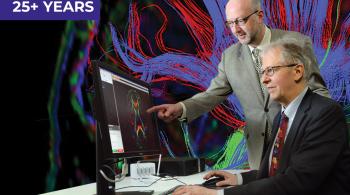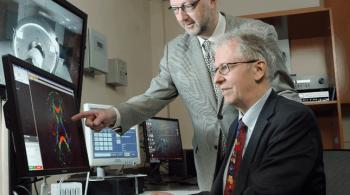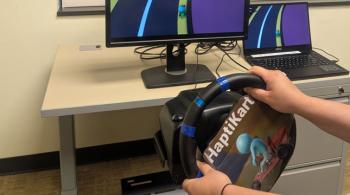BALTIMORE (October 26, 2020) — Using a brief, highly engaging dance imitation video game, a team of researchers at Kennedy Krieger Institute developed a tool to help determine if a child has an autism spectrum condition (ASC).
Led by Stewart H. Mostofsky, M.D., director of Kennedy Krieger’s Center for Neurodevelopmental and Imaging Research, the team created and tested a Computerized Assessment of Motor Imitation (CAMI) using Xbox motion-tracking technology. This new method automatically measures a child’s imitation ability as they play a one-minute game in which they try to copy the actions of a model on a computer screen.
Their results showed that the CAMI method could identify autism diagnosis with more than 87 percent accuracy – a 13-point difference from more traditionally used human coding methods.
“Imitating others is central to the development of social skills”, Dr. Mostofsky said. “But in individuals with ASC, imitation deficits are prevalent, and in fact, associated with core autistic traits.”
To test CAMI, researchers recorded and studied the movements of 48 children, including those with ASC and those categorized as typically developing, as they imitated the model “avatar”. Together with computer vision experts at Johns Hopkins University, the researchers then implemented an algorithm that automatically detects and evaluates the motions of important joints and returns a score that considers spatial position and timing differences between the child’s and the model’s movements.
What they discovered is that children with ASC had a harder time accurately imitating the movements. Furthermore, among children with ASC, CAMI performance was predictive of autism severity, such that poorer imitation correlated with higher core autism trait severity.
The results of their study were published in Biological Psychiatry: Cognitive Neuroscience and Neuroimaging.
“The findings support CAMI as an objective and highly scalable method for assessing motor imitation differences,” said Dr. Bahar Tuncgenc, the first author on the study. “Thus, it provides a promising biomarker for defining ASC and its subtypes as well as guiding interventions.”
The researchers’ next step is to advance CAMI further so it can be used to assess imitation ability with 2D images obtained from off-the-shelf cameras at a very low cost. They believe that this will be a major step towards increasing CAMI’s applicability in clinical and home settings, Dr. Tuncgenc said.
“Autism diagnosis can be challenging and involve extensive effort,” Dr. Mostofsky said. “This study shows that a brief, highly-engaging video-game task that could easily be administered in clinic and home settings has potential to aid in autism diagnosis.”
The group’s work was funded by the National Institutes of Health.
In addition to her work at Johns Hopkins, Dr. Tuncgenc is also a psychologist at University of Nottingham in England.
About Kennedy Krieger Institute:
Kennedy Krieger Institute, an internationally known, non-profit organization located in the greater Baltimore/Washington, D.C. region, transforms the lives of more than 25,000 individuals a year through inpatient and outpatient medical, behavioral health and wellness therapies, home and community services, school-based programs, training and education for professionals and advocacy. Kennedy Krieger provides a wide range of services for children, adolescents and adults with diseases, disorders or injuries that impact the nervous system, ranging from mild to severe. The Institute is home to a team of investigators who contribute to the understanding of how disorders develop, while at the same time pioneer new interventions and methods of early diagnosis, prevention and treatment.
###















